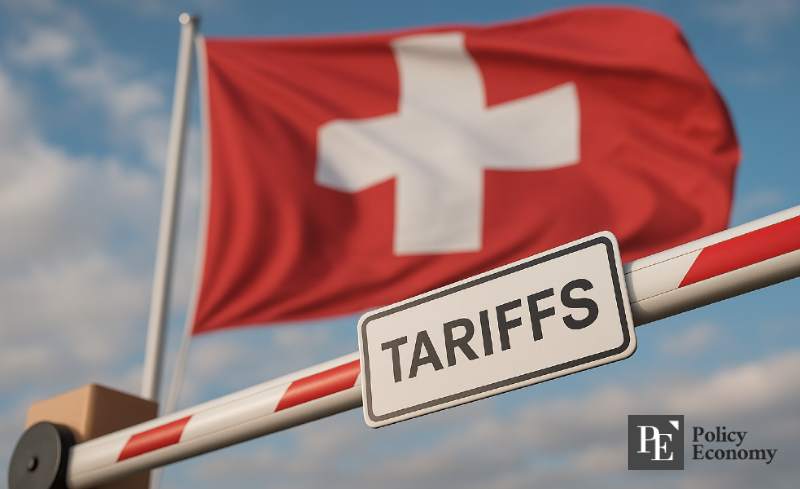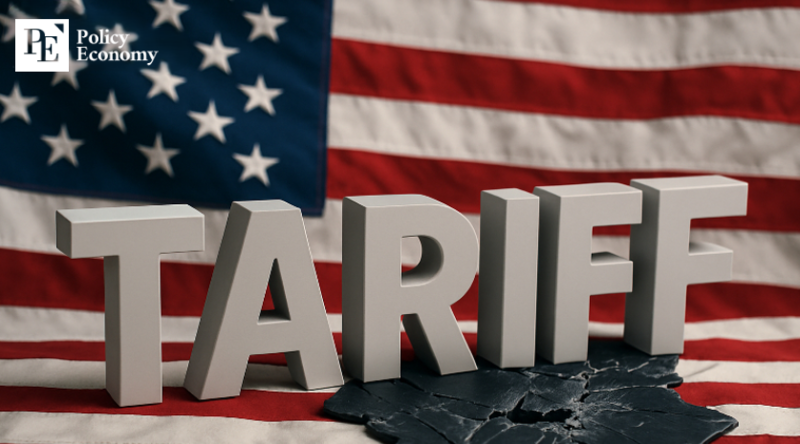Switzerland Scrambles to Contain Fallout After Trump Slaps 39% Tariff
Input
Modified
Unilateral Hike After Phone Call: “No Sign of Good Faith” Agreed Terms Between Ministers Dismissed Switzerland Mulls U.S. Energy Imports to Salvage Deal

U.S. President Donald Trump has imposed a steep 39% retaliatory tariff on Swiss imports. The move is widely interpreted as a response to what Trump perceived as Switzerland’s lack of sincerity in addressing the trade imbalance between the two nations.
Trump Raises Tariffs on Switzerland from 31% to 39%
Bloomberg reported on the 3rd (local time) that the U.S. and Swiss presidents held a phone call at 8 p.m. Swiss time on July 31, just ten hours before the trade deal deadline set by President Trump. If the talks failed, Switzerland was expected to face a 31% reciprocal tariff.
During the call, stark differences emerged in the two leaders' perspectives on trade. Trump reportedly criticized Switzerland’s annual $40 billion goods surplus with the U.S., saying it was akin to the country “stealing from the United States” and demanded remedial action from Bern.
However, Swiss President Karin Keller-Sutter offered no specific proposals, prompting a furious Trump to announce hours later that Switzerland would be subject to a 39% reciprocal tariff starting August 7. The decision was unveiled just hours before the August 1 deadline and places Switzerland behind only Brazil (50%), Syria (41%), Myanmar, and Laos (40%) in terms of tariff severity. Swiss officials had anticipated tariff levels similar to those faced by the EU (15%), the U.K. (10%), or Japan (15%), only to be blindsided.
Tariff Shock for a Country with 0% Import Duties
The Trump administration’s hardline approach took Switzerland completely by surprise. Negotiators from both sides, including U.S. Treasury Secretary Scott Besant and USTR Jamieson Greer, had finalized a draft deal by early July, which was approved by the Swiss government on July 4. Swiss officials reportedly assumed Trump’s final signoff was a mere formality. However, Bloomberg noted, “Switzerland came to realize during the last-minute call that no deal is final without the U.S. president’s direct endorsement.”
When Trump announced a 32% tariff back on April 2, it was accompanied by claims that it would create some 500,000 U.S. jobs. Switzerland was left reeling. President Keller-Sutter expressed disbelief on August 3, saying, “We cannot comprehend the U.S. calculus,” but added that Switzerland would not retaliate and would instead seek negotiations to lower tariffs. Still, Swiss lawmakers were outraged, particularly since the new tariffs far exceeded those imposed on the EU (20%) and the U.K. (10%).
The Trump administration based its tariff hike on last year’s $38.5 billion U.S. trade deficit with Switzerland. Jean-Philippe Kohl, Deputy Director of Swissmem, a federation representing over 1,400 Swiss tech firms, said, “This is a completely arbitrary tariff. We do not impose tariffs on any imports. Trump’s logic makes no sense.”
Switzerland ranks as the sixth-largest foreign investor in the U.S. and is the top contributor to American R&D spending, largely due to the investments by Swiss pharmaceutical giants Roche and Novartis. The trade surplus has mainly stemmed from exports of chemicals, pharmaceuticals, and gold—all of which had previously been exempt from U.S. tariffs.

Switzerland Signals Willingness to Revise Proposal
If the 39% tariff is enforced, Switzerland would find itself at a significant disadvantage compared to EU countries facing just 15% duties. The pharmaceutical sector, which makes up around 60% of Swiss exports, is expected to be hardest hit. Already under pressure from the Trump administration’s push to lower drug prices, Swiss pharmaceutical firms now face compounded challenges. While the original draft deal included tariff exemptions for Swiss pharma exports, USTR Greer denied this in a Bloomberg TV interview, stating, “We will now impose tariffs on pharmaceuticals and encourage domestic production.”
In response, the Swiss government has indicated its willingness to revise the deal to avoid the high tariffs. According to Reuters, Swiss Economy Minister Guy Parmelin told Swiss public broadcaster RTS on August 3 that a special cabinet meeting would be held on the 4th to discuss countermeasures. Parmelin said, “We need to fully understand why the U.S. president made this decision. Only then can we decide on next steps.”
He added, “Time is short, and it may be difficult to achieve something before the tariffs take effect on the 7th, but we will do everything we can to show goodwill and revise our proposal.” Parmelin suggested that possible concessions could include pledges to purchase U.S. liquefied natural gas (LNG) and increased Swiss investment in the U.S. “The EU has also committed to buying LNG. Switzerland already imports LNG, so there’s room for negotiation,” he said, but cautioned, “For meaningful talks to continue, we need to understand exactly what the U.S. expects.” He added, “More investment may be required, but that will only form a viable basis for continued talks if we first gain clarity on U.S. expectations.”





















